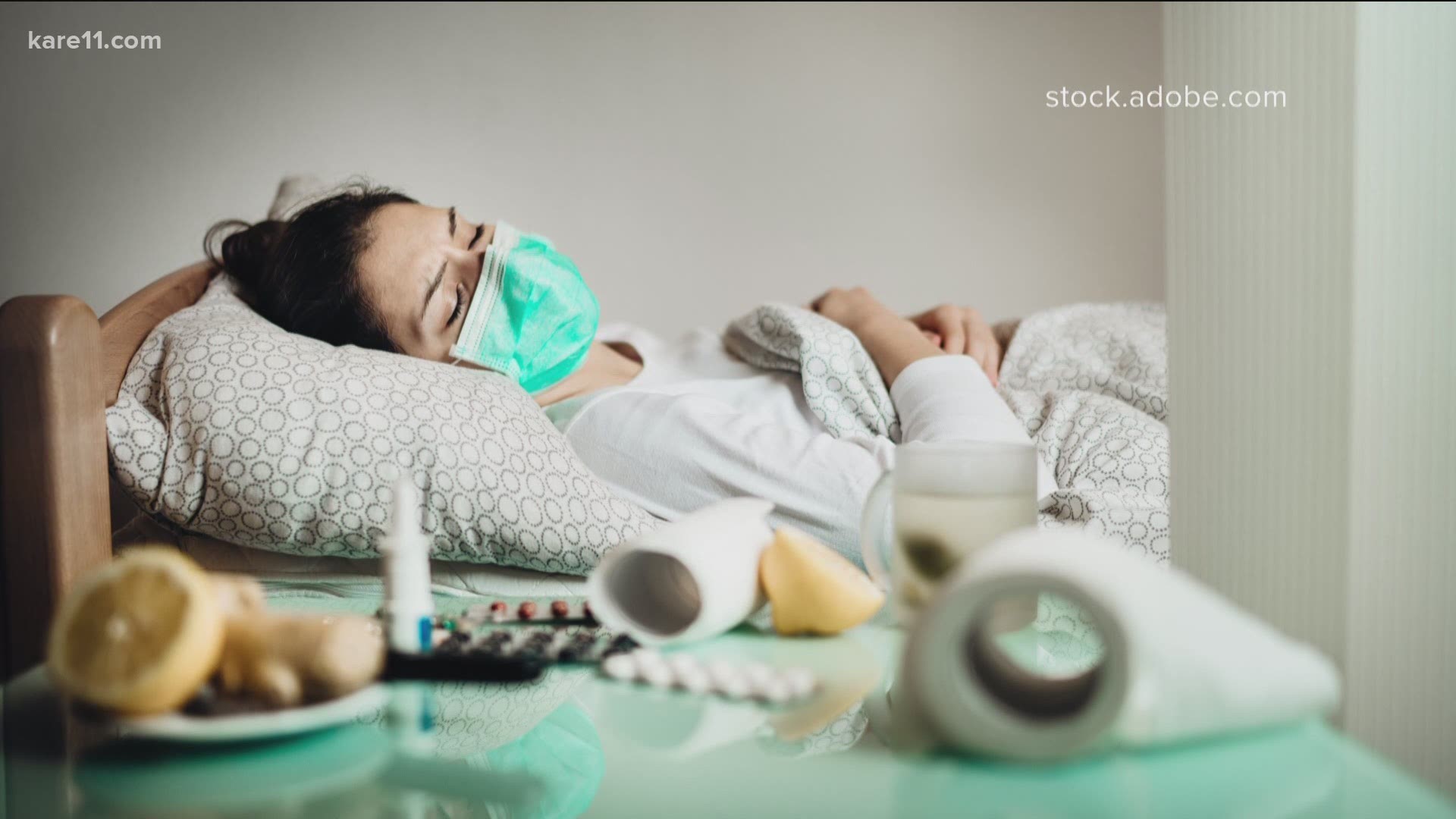ROCHESTER, Minn. — The Mayo Clinic released new findings Wednesday morning about the long-term effects some people are seeing after a COVID-19 diagnosis.
Sometimes called "Post-COVID Syndrome," these COVID "long-haulers" are feeling symptoms like brain fog, headaches and respiratory issues for months after their COVID diagnosis.
The Mayo Clinic's COVID-19 Activity Rehabilitation Program, or CARP, helps people dealing with these symptoms. Their study followed the first 100 patients in this program.
Results of the study showed that 80% of them had unusual fatigue and 59% still had respiratory issues. The same percentage of patients complained of neurological issues like headaches and numbness in their extremities.
"In addition, 45% of patients reported having some form of difficulty with their thinking. This is commonly referred to as the brain fog," said Dr. Greg Vanichkachorn, the Mayo Clinic doctor leading CARP. "And we did not expect to hear the much about this. This is a condition that affects every part of life – it's not just a condition that's about shortness of breath and fatigue."
Vanichkachorn said that anyone who had a COVID infection could suffer from prolonged symptoms, not just people who had a severe case of the virus. The study found 75% of the patients with prolonged symptoms never had to be hospitalized for their initial COVID symptoms.
"In fact, most of them had just mild symptoms early on," he said.
More than a third of the people in the study had trouble doing basic activities of daily living, like taking a shower or using the bathroom. Only 1 in 3 had returned to work without restrictions.
Vanichkachorn said some patients found the most disturbing symptom to be the brain fog.
"The more we learn about long-haul COVID, the brain fog seems to be very similar to concussion symptoms," he said.
Most patients have had to have physical or other types of therapy.
68% of the patients are women.
"We’re not quite sure why there is this preponderance of the female gender," Vanichkachorn said. "Perhaps this has to do with biology and hormonal differences."
Vanichkachorn said the average time between the start of a patient's infection and coming to the clinic was about three months.
It's not known why some people have long-lasting symptoms of COVID.
"There are a lot of people out there who have COVID-19 infections and they were able to bounce back right after two weeks," Vanichkachorn said. "It’s difficult to understand why another person may not be following that same recovery."

